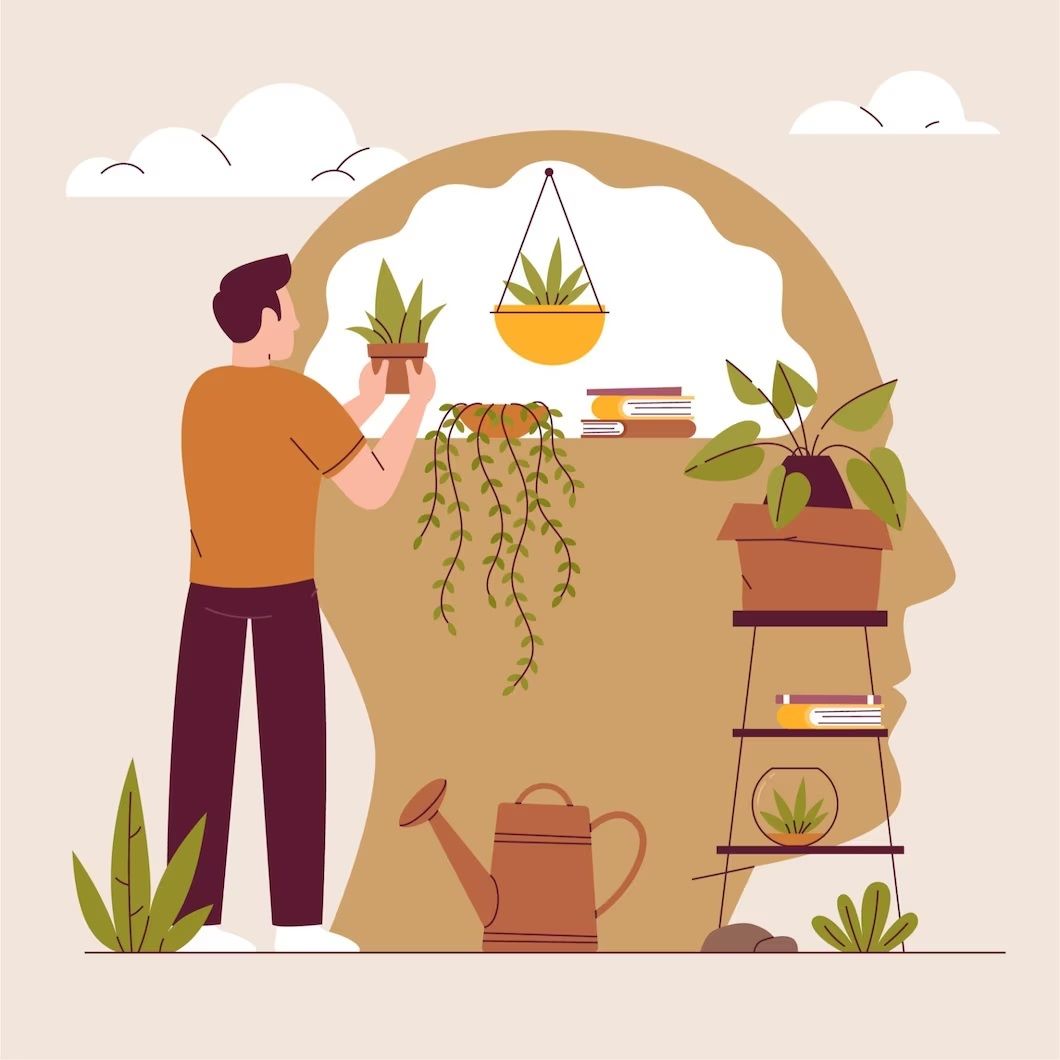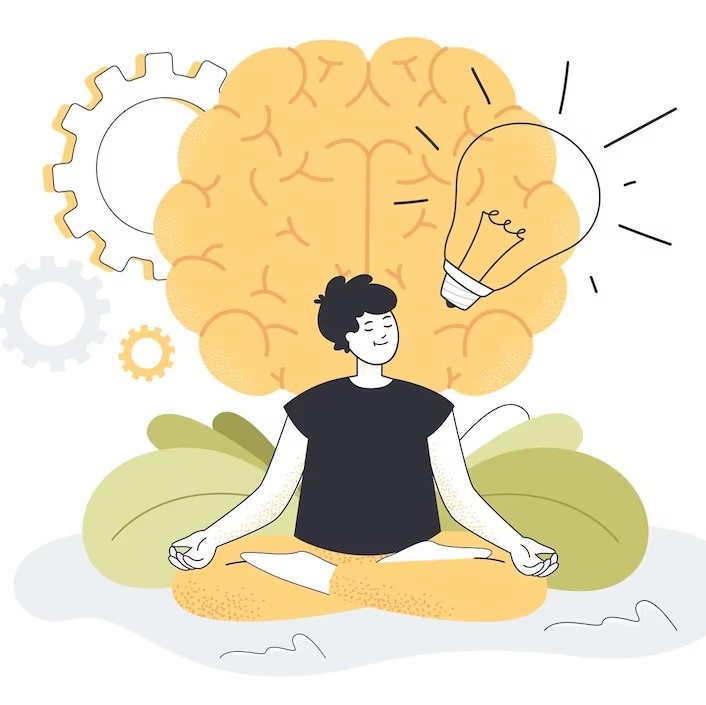Embracing Your Strengths and Unique Qualities
Identifying Your Strengths and Unique Qualities
Identifying your strengths and unique qualities is an important step in achieving success in both your personal and professional life. When you understand what you excel at and what sets you apart from others, you can leverage those qualities to set yourself apart from the competition and achieve your goals. One way to identify your strengths is to take a personal inventory of your skills, experiences, and natural abilities. Think about your past accomplishments and what made them possible, as well as any challenges you've faced and how you overcame them. By reflecting on your own experiences, you can gain insight into what you're good at and what comes naturally to you.
Another way to identify your strengths and unique qualities is to ask for feedback from friends, family, peers, and mentors. These people can provide valuable insights into your strengths and areas for improvement that you may not be aware of. Be open to constructive criticism and use it as an opportunity to learn and grow. You can also take assessments such as the StrengthsFinder or Myers-Briggs Type Indicator to gain a better understanding of your personality traits and how you can use them to your advantage.
Once you have identified your strengths and unique qualities, it's important to find ways to showcase them in both your personal and professional life. This can include highlighting your strengths on your resume or in an interview, seeking out opportunities that align with your strengths and passions, and being confident in your abilities. By highlighting your strengths and unique qualities, you can stand out in a crowded job market or be recognized for your contributions to a team. Remember, your strengths and unique qualities are what make you who you are - embrace them and use them to achieve your goals.
Understanding the Benefits of Self-reflection
Self-reflection is the process of examining and evaluating oneself in order to gain a deeper understanding of one's thoughts, actions, and experiences. This practice allows individuals to identify patterns and behaviors that may be hindering their personal growth or hindering them from achieving their goals. Self-reflection is a crucial component of personal and professional development, as it helps individuals gain insight into their strengths and weaknesses, and ultimately allows them to make positive changes in their lives.
One of the key benefits of self-reflection is that it promotes self-awareness. By taking the time to reflect on our thoughts and actions, we are able to understand ourselves better and gain a deeper understanding of our emotions and motivations. This increased self-awareness allows us to become more mindful of our behavior and make conscious decisions that serve our best interests. It also helps us to identify areas where we need to improve in order to achieve our goals and become the best version of ourselves.
Another important benefit of self-reflection is that it helps individuals develop a more positive outlook on life. By focusing on the positive aspects of our experiences, we are able to cultivate feelings of gratitude and satisfaction, which in turn can improve our mental health and well-being. Self-reflection also helps us to develop a more growth-oriented mindset, which allows us to see challenges and obstacles as opportunities for learning and personal development. This mindset shift can lead to greater resilience and the ability to bounce back from setbacks more easily.
Accepting Your Strengths and Qualities
Accepting your strengths and qualities is an important step in achieving true self-acceptance and finding inner peace. Often, we are our own worst critics, focusing on our shortcomings and comparing ourselves to others. However, this negative self-talk only leads to feelings of insecurity and self-doubt. Instead, we should focus on our unique qualities and the things that make us strong. By accepting ourselves for who we are, flaws and all, we can move forward with confidence and a sense of purpose.
Recognizing your strengths and qualities starts with self-reflection. Take the time to think about what you are truly good at, what sets you apart from others, and what brings you a sense of joy and fulfillment. This may involve exploring new hobbies or interests, stepping outside of your comfort zone, and learning to embrace your unique personality traits. It is also important to seek feedback from others, particularly those who know you well and can offer honest and constructive criticism. By gaining a better understanding of your strengths and qualities, you can begin to build a more positive and authentic self-image.
Ultimately, accepting your strengths and qualities is about more than just feeling good about yourself. It is about recognizing your inherent worth as a human being, regardless of your accomplishments or failures. It is about understanding that you have something valuable to offer the world, and that your unique gifts and talents are meant to be shared. So go ahead, embrace your strengths and qualities, and let your light shine bright for all to see.
Exploring Your Own Interests
Exploring your own interests can lead to a fulfilling life. When you take the time to figure out what you enjoy doing, it can give you a sense of purpose and direction. It can also lead to opportunities for growth and learning. Whether it's a hobby, a career, or a lifestyle, pursuing your interests can help you feel more fulfilled and satisfied in your life.
One way to explore your interests is to try new things. This can be as simple as trying a new restaurant or taking a different route to work. You never know what you might discover that you enjoy. It's also important to reflect on what you already know you enjoy. Think about the things you do in your free time or the tasks you enjoy at work. These can give you clues about what you might want to explore further.
Don't be afraid to step out of your comfort zone. Exploring new interests can be intimidating, but it can also be rewarding. You might discover something you never expected to enjoy. It's also okay to change your mind and try something else if your initial interests don't pan out. The point is to try and to keep an open mind. Who knows? You might just find your next passion or hobby.
Building Self-confidence
Building self-confidence is not an easy task, but it is essential for leading a successful life. Confidence is the belief in oneself and one's abilities. It is the inner voice that tells us we are capable of achieving our goals. When we are confident, we feel good about ourselves, and we can face challenges with courage and determination. On the other hand, lack of confidence can lead us to doubt our abilities and shy away from opportunities.
The good news is that confidence can be developed and nurtured with time and effort. To build self-confidence, we need to start by focusing on our strengths and positive qualities. We should acknowledge our achievements and celebrate our successes, no matter how small. We should also learn to accept our weaknesses and mistakes without judgment or harsh self-criticism. We can use our failures as opportunities to learn and grow, rather than as reasons to give up.
Another crucial factor in building self-confidence is taking care of our physical and mental health. Exercise, proper nutrition, and adequate sleep can boost our energy levels and improve our mood. At the same time, practicing mindfulness, meditation, or other relaxation techniques can help us manage stress and anxiety. When we feel good about ourselves physically and mentally, we are more likely to approach challenges with confidence and resilience. Ultimately, building self-confidence is a lifelong process that requires patience, self-awareness, and a willingness to learn and grow.
Practicing Self-compassion
Practicing self-compassion is one of the most important things we can do for ourselves. Often times we are our own harshest critics and we can be very hard on ourselves. This can lead to negative self-talk, feelings of worthlessness, and even depression. By practicing self-compassion, we can learn to treat ourselves with kindness, understanding, and acceptance. This means acknowledging our mistakes and shortcomings but also recognizing our strengths and achievements. It means treating ourselves the way we would treat a good friend who is going through a tough time.
Self-compassion is not about making excuses for ourselves or avoiding responsibility. It's about recognizing our own humanity and giving ourselves permission to be imperfect. It's about learning to be kind and forgiving towards ourselves, even when we make mistakes or fall short of our goals. This can be especially challenging for those of us who were raised in a culture that values perfectionism and achievement above all else. However, it's important to remember that self-compassion is not a sign of weakness but a sign of strength. It takes courage to face our inner demons and treat ourselves with compassion and kindness.
There are many ways to practice self-compassion. Some people find it helpful to write themselves a letter of compassion, acknowledging their strengths and offering words of kindness and understanding. Others might take a break from their busy lives to engage in a self-care activity like taking a bubble bath or going for a walk in nature. Still, others might find it helpful to enlist the support of a close friend or therapist who can offer a listening ear and words of encouragement. Whatever method we choose, the important thing is to be consistent and committed to cultivating a kinder, more compassionate relationship with ourselves.
Discovering and Developing New Skills
When it comes to discovering and developing new skills, it's important to have a growth mindset. This means having an open and curious attitude towards learning, embracing challenges, and viewing setbacks as opportunities to learn and improve. Cultivating a growth mindset requires patience, persistence, and a willingness to step outside of your comfort zone.
One way to discover new skills is to explore different areas of interest. This can involve trying out new hobbies, taking online courses or workshops, reading books or articles about topics you're curious about, or even enrolling in a formal academic program. Taking small steps towards learning something new each day can lead to significant progress over time.
Developing new skills requires consistent practice and feedback. It's important to set realistic goals and break them down into manageable steps, creating a plan for putting your new skills into action. Seeking out mentors, coaches, or peers who can offer constructive criticism and support can also be helpful in the learning process. And don't forget to celebrate your progress along the way, as each small achievement can be a motivator to keep pushing forward.
Celebrating Accomplishments and Successes
Celebrating accomplishments and successes is a crucial component of leading a fulfilling life. Whether big or small, every achievement deserves recognition and celebration. Taking the time to appreciate your accomplishments helps boost your self-confidence and motivates you to set new goals for yourself. It is essential to take a step back and reflect on your progress; it helps you measure how far you have come and how much further you can go.
There are several ways to celebrate your accomplishments and successes. You can throw a small party, buy yourself a gift, treat yourself to a fancy dinner or even take a vacation. Whatever way you choose to celebrate, make sure it is something that brings you joy and reinforces your sense of achievement. Don't be afraid to share your story with others; it might encourage someone else to work towards their goals.
It is crucial to celebrate the accomplishments and successes of others too. Acknowledging someone else's achievement shows that you care about them and appreciate their hard work. It helps build a supportive community that encourages others to strive for success. Celebrating with others also helps you learn and grow while fostering relationships that last a lifetime. Celebrate your accomplishments and successes, and share the love with others too.
Nurturing and Utilizing Your Strengths
Nurturing and utilizing your strengths is a crucial aspect of personal and professional development. To begin with, it is important to identify your strengths and understand how they can be leveraged for your benefit. This requires introspection and an honest assessment of your skills, knowledge, and abilities. Once you have identified your strengths, it is important to focus on developing and refining them. This can be achieved through practice, seeking feedback, and taking up challenging assignments that allow you to apply and improve your strengths.
Utilizing your strengths can have a positive impact on your personal and professional life. When you leverage your strengths, you perform at your best and are more engaged and motivated. This can result in higher levels of job satisfaction, improved relationships, and better overall well-being. It can also help you achieve your goals and contribute more effectively to your team or organization. It is important to keep in mind that while focusing on your strengths, you should not neglect your weaknesses. It is essential to work on your weaknesses and learn from them, but your strengths should be your primary focus.
Finally, nurturing and utilizing your strengths is a continuous process that requires ongoing effort and reflection. As you grow and evolve, so do your strengths, and it is important to adapt and develop them accordingly. This means being open to feedback and new experiences, seeking out opportunities to learn and grow, and being willing to take risks and step out of your comfort zone. By nurturing and utilizing your strengths, you can achieve your full potential and lead a fulfilling and successful life.
Creating Connections With Other People
Having strong connections with other people is essential to living a happy and fulfilling life. Whether it be with family, friends, or even strangers, a sense of belonging and community can bring about feelings of joy and satisfaction. It is important to make an effort to build these connections and maintain them, as they can provide support during tough times and enhance positive experiences. One way to begin creating these relationships is to simply engage in conversation and show genuine interest in others.
Another important aspect of building connections is to find common ground. Shared interests or experiences can bring people together and create deeper understanding and empathy. This can also lead to new friendships and opportunities for personal growth. We should not be afraid to open up and share our own experiences and perspectives, as this can also create deeper connections and foster trust and respect between individuals. Communication and mutual respect are key to building and maintaining strong relationships.
Finally, it is essential to be present in our interactions with others. In today's fast-paced world, it is easy to become distracted and disconnected from those around us. However, by taking the time to truly listen and engage with others, we can create meaningful connections that enrich our lives. This can be done through both verbal and nonverbal cues, such as maintaining eye contact and actively listening to what others have to say. By prioritizing the value of our relationships, we can create a more connected and fulfilling life for ourselves and those around us.
Developing Resilience and Perseverance
Developing resilience and perseverance is crucial to success in any aspect of life. Whether it’s in your personal or professional life, the ability to overcome adversity and persist despite challenges is what sets successful people apart. Resilience helps us bounce back from setbacks and persevere in the face of obstacles. It's a skill that can be learned and developed over time, but it takes effort and practice to build.
Resilience and perseverance go hand in hand. When you have resilience, you are better able to persevere through difficult times. You are more adaptable and able to adjust to changes as they come. You enter each challenge with a can-do attitude, knowing that you can overcome any obstacle with determination and effort. Perseverance is a key ingredient in achieving your goals, and you need resilience to help you stay the course.
If you want to develop resilience and perseverance, start by working on your mindset. Cultivate a growth mindset, one that sees challenges as opportunities for growth and learning. Learn to embrace failure as a natural part of the process and not as a reflection of your worth. Focus on what you can control, rather than what you can't. Set achievable goals for yourself and celebrate your progress along the way. Developing resilience and perseverance takes time and effort, but with dedication and a growth mindset, you can build the skills you need to succeed in any aspect of your life.
Being Open to New Opportunities
Being open to new opportunities is an essential mindset that many successful people have adopted. By being open, you allow yourself to see things from a different perspective, and this can lead to new ideas and opportunities that you may not have otherwise considered. Additionally, being open also means being willing to take risks and embrace change, which are crucial qualities for success. When you are open to new opportunities, you are more likely to take advantage of them and achieve success.
Another benefit of being open to new opportunities is that it helps you stay relevant and adaptable in a constantly changing world. In today's fast-paced society, it's important to be able to adapt to new situations and take advantage of emerging technologies and trends. By actively seeking out new opportunities and staying open-minded, you can stay ahead of the curve and position yourself for success. This is particularly important in the workplace, as industries and jobs can rapidly evolve due to technological advancements and changing market conditions.
While being open to new opportunities can be beneficial, it's also important to have a balanced approach. You can't take advantage of every opportunity that comes your way, as this can lead to burnout and a lack of focus. Instead, it's important to weigh the pros and cons of each opportunity and determine which ones align with your goals and values. By being selective and strategic in your approach, you can maximize the benefits of being open to new opportunities while avoiding the pitfalls of spreading yourself too thin.
Embracing Your Authenticity
Embracing one's authenticity is a courageous act that requires self-reflection and self-acceptance. It means acknowledging our true selves, including our flaws and imperfections, and being comfortable in our own skin. It's about prioritizing our values, beliefs, and aspirations, even if they don't conform to societal norms or expectations.
Living authentically also means being honest with ourselves and others. It means not pretending to be someone we're not or hiding our true thoughts and feelings. When we are authentic, we open ourselves up to deeper connections with others who appreciate us for who we are, not who we pretend to be. We also experience a greater sense of fulfillment and self-esteem because we are living a life true to ourselves.
However, embracing our authenticity can be challenging, especially when we face pushback or criticism from others. It's important to remember that being true to ourselves is worth the discomfort and potential backlash. We must also surround ourselves with people who accept us for who we are and support our authentic selves. Ultimately, living authentically allows us to cultivate a meaningful and fulfilling life, rich with self-discovery, growth, and connection.



